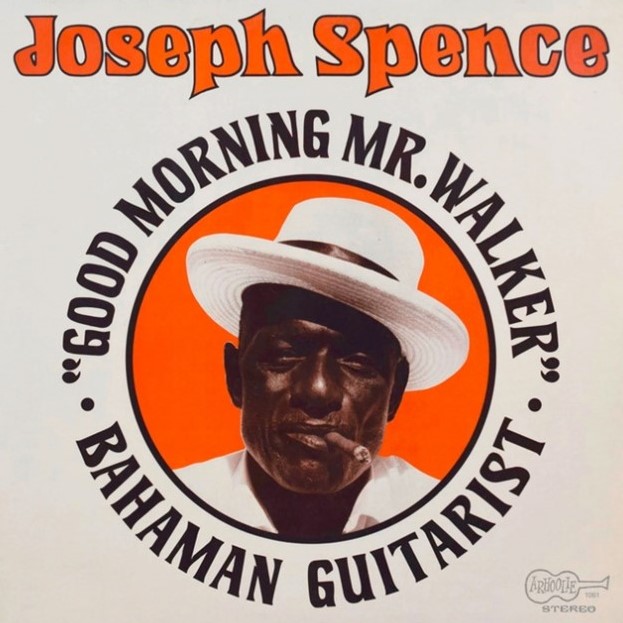Master guitarist, paralanguage hummer, and singer Joseph T. Spence was born on August 3, 1910, in Small Hope, Andros Island, Bahamas. Spence had one sister, Edith Pinder, who sang with him, and four half-brothers. However, there was no available information regarding the names of his parents or any offspring. His father was a preacher.
When Spence was nine, his uncle, a flutist living in the United States, brought him his first guitar. Spence learned the instrument independently, and by 14, he was playing for dances with a polyrhythmic guitar style and a soothing guttural counterpoint vocal sound. From 1926 to 1938, while working as a sponge fisherman, Spence who was a known musician in the Fresh Creek Settlement on Andros Island, spent a considerable amount of time developing vocal harmonies while playing his guitar.
In 1939 Spence moved to Nassau, the Bahamian capital city, to earn a better living. Four years later, Spence now married, and his new wife, Louise Spence, left the Bahamas for the United States where they were migrant workers. They returned to the Bahamas in 1945.
Spence first gained notoriety as a musician in the 1950s. In 1958, musicologist Samuel Charters and folklorist Ann Danberg, both from the United States, conducted fieldwork on the Bahamas’ island of Andros. Here they stumbled upon the musical talents of Spence. He was invited to sit with them, perform on the guitar, and sing on their front porch. The following year, 1959, Spence released the album Music of the Bahamas, Volume 1: Bahaman Folk Guitar, on Folkways Records label (now Smithsonian Folkways) with their assistance.
In 1964, during the pinnacle of Spence’s career, he released the album Happy All the Time with Elektra Records. The following year, in 1965, he produced the album Encore which consisted of the traditional music of Bahamian sponge fishermen. On that album the single, “Out on the Rolling Sea,” was recorded at a concert sponsored by the Friends of Old Time Music and the Newport Folk Foundation at the New School in New York City. This was Spence’s only performance in New York City. Other cuts on the album include “Bimini Gal,” “Brown Skin Girl,” and “The Glory of Love.”
Spence’s brief stay in the U.S. had profound influence on his musical style. He covered gospel tunes such as “Down By the Riverside,” “Give Me That Old Time Religion,” “Just a Closer Walk With Thee,” and the decidedly non-Gospel, “Santa Claus is Comin’ to Town.”
In 1971, Spence performed a concert in Boston, Massachusetts, sponsored by the Boston Blues Society. While there, he also recorded the work “Good Morning Mr. Walker.” Nine years later, in 1980, Living on the Hallelujah Side was released on the Rounder Records label. Moreover, he completed more than ten Calypso, Folk, and Blues albums but sadly owned no copies of his work.
Joseph T. Spence—whose guitar style has inspired numerous musicians including the legendary Taj Mahal and film score composer and guitarist Ry Cooder—died in New Providence, Nassau, on March 18, 1984. He was 73. His unrecorded hymn, “Won’t That Be A Happy Time,” was played at his funeral.

